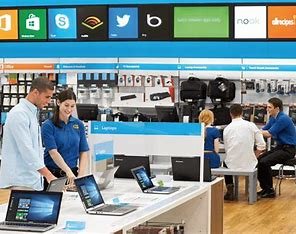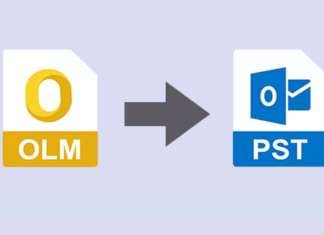Table of Contents
- Introduction
- The Advantages of Buying Used Laptops
- Cost-Effectiveness
- Higher Specifications at Lower Prices
- Reduced Environmental Impact
- Where to Find Quality Used Laptops
- Certified Refurbished Retailers
- Online Marketplaces
- Local Computer Stores
- Buy-and-Sell Forums
- What to Look for When Buying a Used Laptop
- Physical Condition
- Specifications
- Age of the Laptop
- Warranty and Return Policies
- Tips for Ensuring Quality and Reliability
- Research the Model
- Check for Warranty
- Buy from Reputable Sellers
- Test the Laptop Before Purchase
- The Precautions to Take While Purchasing
- Beware of Scams
- Meet in Safe Public Places for Transactions
- Avoid Stolen Devices
- Validate the Laptop’s Ownership
- Things to Avoid When Buying Used Laptops
- Outdated Operating Systems
- Unfixable Hardware Issues
- Unknown Brands and Models
- Extremely Low Prices
- Conclusion
- Frequently Asked Questions
- Are used laptops worth buying?
- What are the best brands for used laptops?
- How can I check the laptop’s battery health?
- Can I upgrade a used laptop?
- Is it safe to buy a used laptop online?
Introduction
Are you on a tight budget but in need of a reliable laptop? Don’t worry; you can still get your hands on a powerful machine without breaking the bank. Welcome to the ultimate guide to buying used laptops, where we’ll explore the benefits of purchasing pre-owned devices, where to find them, what to consider before making a purchase, and the precautions to ensure a successful and satisfying buying experience.
The Advantages of Buying Used Laptops
Cost-Effectiveness
One of the most significant advantages of buying a used laptop is cost-effectiveness. Unlike brand-new laptops that can cost a small fortune, used laptops are considerably more affordable. By opting for a pre-owned device, you can save a substantial amount of money while still getting a machine that meets your computing needs.
Higher Specifications at Lower Prices
Purchasing a new laptop with high-end specifications can be financially challenging. However, when buying used, you have the opportunity to get a laptop with better specifications, such as a faster processor, more RAM, or a larger storage capacity, at a fraction of the cost of a new one.
Reduced Environmental Impact
Choosing a used laptop over a new one contributes to environmental sustainability. The electronics industry generates a significant amount of electronic waste, but by opting for a pre-owned laptop, you’re helping to reduce waste and promote recycling and reusing of electronic devices.
Where to Find Quality Used Laptops
Certified Refurbished Retailers
When seeking a reliable used laptop, certified refurbished retailers are an excellent place to start. These retailers rigorously test and repair pre-owned laptops to meet the original manufacturer’s standards. Buying from certified refurbishers often comes with warranties, providing peace of mind in your purchase.
Online Marketplaces
Online platforms like eBay, Amazon, and Craigslist offer a wide selection of used laptops. However, exercise caution when dealing with individual sellers. Check their ratings and reviews to ensure a safe and reliable transaction.
Local Computer Stores
Local computer stores frequently have a selection of used laptops. Buying from a physical store allows you to inspect and test the device before making a decision. Moreover, developing a relationship with a local store can be beneficial for future technical support or upgrades.
Buy-and-Sell Forums
Online buy-and-sell forums and communities focused on electronics are a treasure trove of used laptops. These platforms often have knowledgeable members, and you can find a diverse range of laptop options to choose from.
What to Look for When Buying a Used Laptop
Physical Condition
Carefully inspect the laptop’s physical condition for any signs of damage, such as scratches, dents, or worn-out keys. The overall appearance can indicate how well the previous owner maintained the laptop.
Specifications
Pay close attention to the laptop’s specifications, including the processor, RAM, storage capacity, and graphics card. Ensure that the hardware meets your intended usage, whether it’s for work, entertainment, or gaming.
Age of the Laptop
While older laptops can still perform well, consider the age of the laptop and its impact on compatibility with current software and the availability of replacement parts for potential repairs.
Warranty and Return Policies
If possible, choose a used laptop that comes with a warranty. A warranty offers added protection in case of unforeseen issues shortly after the purchase. Additionally, review the seller’s return policies to know your options if the laptop does not meet your expectations.
Tips for Ensuring Quality and Reliability
Research the Model
Before finalizing a purchase, research the specific laptop model to understand its performance, common issues, and user experiences. This research empowers you to make an informed decision and avoid potential disappointments.
Check for Warranty
If the laptop is still covered under the original manufacturer’s warranty, you can take advantage of repair or replacement services if needed. Verify the warranty status with the manufacturer or seller.
Buy from Reputable Sellers
Opt for reputable sellers with positive feedback and a history of successful transactions. Positive reviews and ratings from previous customers indicate a trustworthy seller.
Test the Laptop Before Purchase
Whenever possible, test the laptop to evaluate its performance, display quality, and overall functionality. Testing the laptop ensures that it aligns with your requirements and works as expected.
The Precautions to Take While Purchasing
Beware of Scams
While most sellers are genuine, some scammers may attempt to deceive buyers with false promises or counterfeit laptops. Avoid deals that seem too good to be true and be cautious when providing personal or financial information.
Meet in Safe Public Places for Transactions
If meeting with the seller in person, choose a safe, public location for the exchange to reduce the risk of theft or fraudulent activity.
Avoid Stolen Devices
Ask the seller for proof of ownership, such as the original purchase receipt or packaging. Avoid purchasing laptops with removed serial numbers or those that appear suspicious.
Things to Avoid When Buying Used Laptops
Outdated Operating Systems
Be wary of laptops with outdated operating systems that may not receive software updates and security patches.
Unfixable Hardware Issues
Avoid laptops with irreparable hardware issues, such as a faulty motherboard or damaged screen, as they may lead to costly repairs.
Unknown Brands and Models
Stick to reputable brands and well-known laptop models to ensure better support, availability of spare parts, and community knowledge.
Extremely Low Prices
If a used laptop is being sold at an unusually low price, it may indicate hidden problems or scams. Always prioritize quality over the lowest price.
Conclusion
With this complete used laptop buying guide, you’re now equipped with the knowledge to make an informed decision and get the best value for your money. Remember to consider the advantages of buying used laptops, explore different sources for pre-owned devices, and pay attention to the laptop’s condition and specifications. Additionally, follow the provided tips and precautions to ensure a smooth and satisfactory buying experience. By doing so, you can find the perfect hidden gem and enjoy a powerful and affordable laptop that suits your needs.
Frequently Asked Questions
- Are used laptops worth buying? Absolutely! Used laptops offer great value for money, especially if you choose wisely from reputable sources.
- What are the best brands for used laptops? Some top brands known for their reliable used laptops include Dell, Lenovo, HP, Apple, and ASUS.
- How can I check the laptop’s battery health? You can use software tools like BatteryInfoView or CoconutBattery to assess the battery health and capacity.
- Can I upgrade a used laptop? Yes, in many cases, you can upgrade certain components of a used laptop, such as RAM or storage, to enhance its performance.
- Is it safe to buy a used laptop online? While buying online can be safe, exercise caution, buy from reputable sellers, and consider meeting in person for inspection before purchase.





